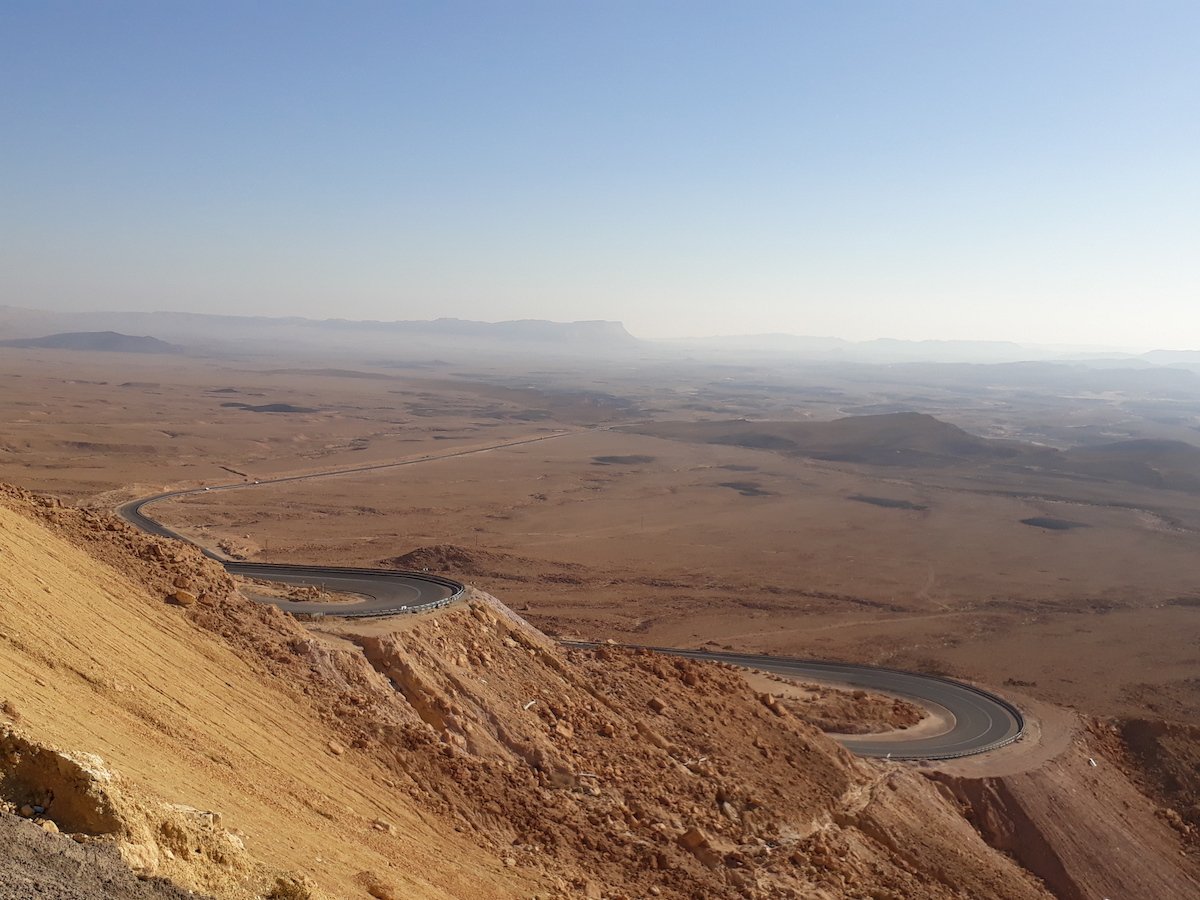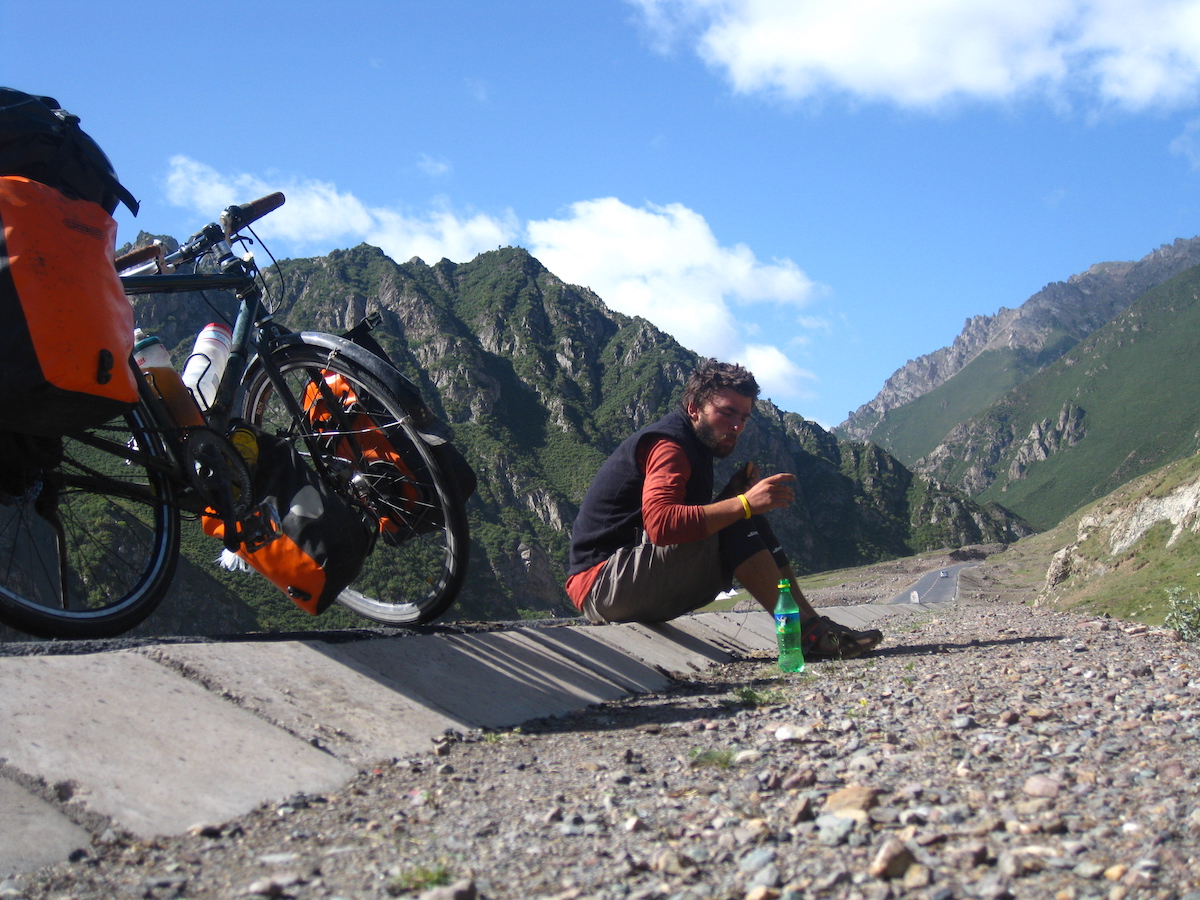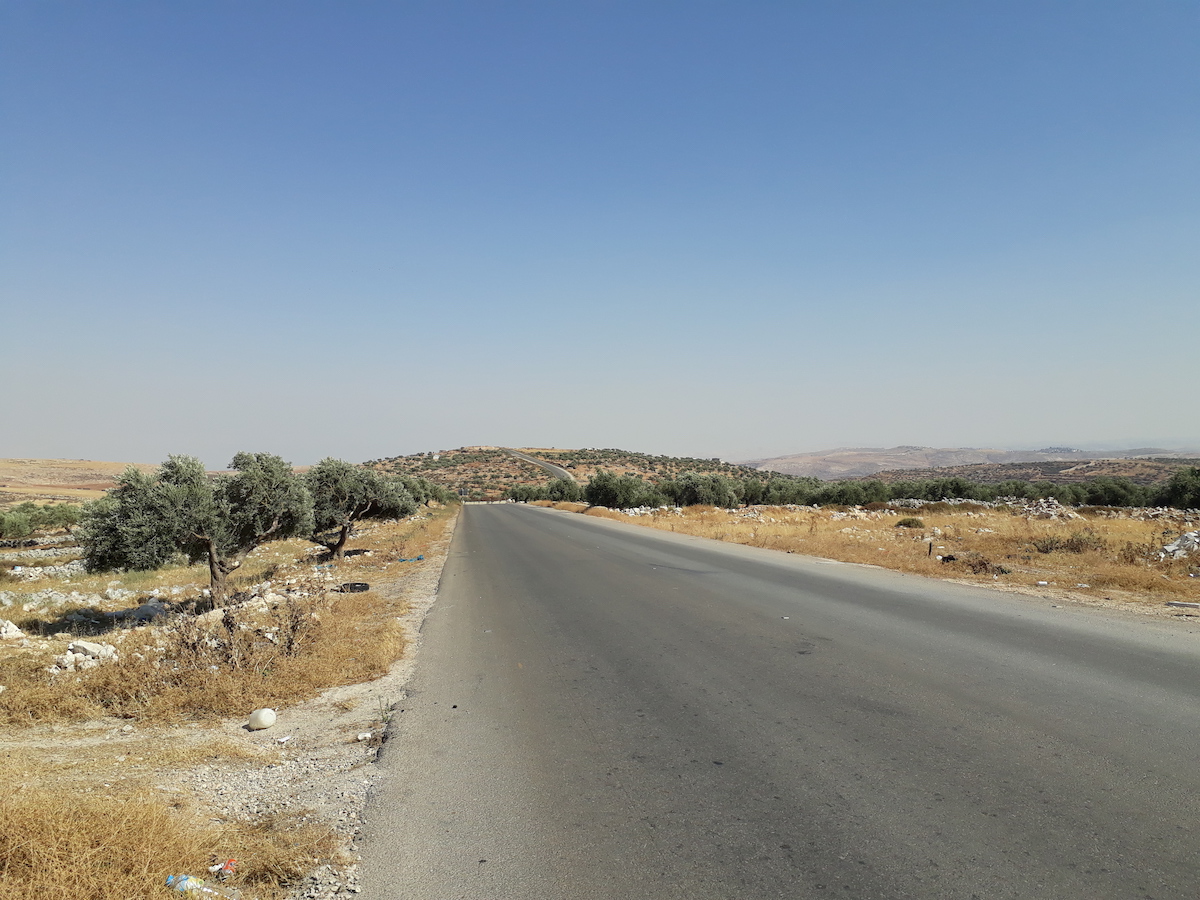
Award-winning author, journalist and adventurer, Julian Sayarer, reflects on the pandemic, his record-breaking bicycle circumnavigation, and a recent ride through Palestine and Israel, to give a view of how travel and adventure has changed, and how it’s about to change more.
If the world had changed then it followed that travel would have to change with it. Travel, after all, was one of the defining features of all life on earth; our planet travelled through space, while we – along with its other organisms – travelled through it. Our journeys shaped us and the geographies we moved in and then returned to. When the pandemic hit, the only thing that moved freely was the virus, and we tried to do all that we could to stop it, by holding still.
Often I found myself thinking that the pandemic was not, as some hardened environmentalists had suggested, the earth “healing”, but might possibly be a revenge for the arrogance of the newly-minted word, ‘anthropocene’, and its contention that the very destiny of the planet was now to be shaped by humans. We were, once again, smaller than we’d believed, and grounded in that smallness, suddenly left with plenty of time to reflect.
As a travel writer who found himself a whole new world to write about without having to go anywhere, I thought of what it would mean for travel, and that word now so associated with it; adventure. When questioned what my first adventure was, I tend to surprise people by recounting a weekend afternoon, aged about eleven, when I asked my mum’s permission to cycle to my grandparents’ house, about ten miles away.
Travel should be not only a condition of movement but of being moved by that movement.
Perhaps in-keeping with the basic terms of adventure, the idea started as an idle musing, a consideration of if the feat were even possible, before transpiring to be eminently doable and exhilarating in its sense of liberty. When, in 2009, I set a world record for the world’s fastest bicycle circumnavigation, riding 18,049 miles in 169 days, it was a ride in opposition to the corporate-backed, investment-fund emblazoned ride of the previous record-holder; a statement that adventure and the open road, that life by bicycle, had to be kept sacred, for a society where nothing is sacred soon ceases to be a society at all.
Cycling through Palestine, riding and writing about a bicycle’s ability to transcend Israel’s military occupation there, it was clearer than ever that travel should be not only a condition of movement but of being moved by that movement. As the pandemic obliges the reassessment of travel plans, the meaning of travel seems ready to alter in ways that do more to accommodate this transformative definition.

Changing Times
Since my first big journeys, the world of adventure has changed almost beyond recognition. Tracking for a world circumnavigation was in 2009 an optional extra, while plummeting affordability since made it mandatory – it is now harder to stop being tracked than to start it. I still marvel that, back then, a single daily tweet, 140 characters sent as an SMS message by a pre-smart phone, to be uploaded to my website, seemed like a dizzying and fantastic level of communication. The idea of attaching an image to such words was beyond comprehension, almost garish, and my messages instead went out all minimal, like tiny haiku of the road.
How did an activity that is defined by splendour and mystery come to be described by words intended to convey uniformity and mass-production?
The superabundance of travel that people have engaged upon since then, pushed by cheaper flights and pulled by social media attention, took us to a place where it is now common for me to hear adventure talked about in ever more business terms. Often it is the “sector”, frequently the “industry”. How did an activity that is defined by splendour and mystery come to be described by words intended to convey uniformity and mass-production?
With the arrival of the pandemic, and in an instant, people stopped travelling. A long distance cycle tourer, shut down in Kosovo on his round-the-world, wrote and thanked me for the vicarious riding of my latest book. Not only did people stop travelling, though, they also stopped planning to travel, or were moved to cancel future travels. One of the few certainties of the pandemic was that – for a while – people would travel less, much less, and the rigid laws of supply and demand dictate that as soon as something becomes scarcer, its value has to go up.
If affordability, rationing or mere risk dictates that you have just one holiday a year, the chances are people will no longer just “do” Naples. If people are looking for more, and demanding more of where they go when they get there, it takes us to that point where travel becomes more than just its movement; it forces us to look around more in the place we get to, and it forces us to look around more in the places we call home, which is often where travel begins anyway.
The start of my journey in Palestine was a trip to Stanfords in Covent Garden, buying the map that I then went home and pored over and kept on my desk for months. Travel can be reading all there is to read about places you mean to visit, can be joining a book club that provides reading lists, discussion and the insights of fellow travellers and readers. There is a part of travel that takes place at home, and a part of travel that takes place away – whatever the difference in location, the processes are interconnected and interdependent.

“Out there”
For me, two words lie at the root of the ills of adventure and much of the mass tourism industry: “out there”. I hear them often alongside encouragement, or a stated need, to get “out there”, but in them, invisibly, is a second concept that gains less attention but is perhaps more important: “in here”. They are binary opposites; each one demands that the other must exist, but if ‘out there’ is mountain, beach and jungle, then where and what is ‘in here’?
I remember once talking to a friend, a woman my age and working for a fat salary at a big tech company, in a job she’d never liked and probably never will. New to London after her transfer from the San Francisco office, we’d met one evening and she’d explained a recent trip to Morocco, flying out there Thursday evening and back to, I suppose, in here, on Sunday night before work on Monday. “I just thought ‘fuck it’, I’m gonna go, and booked my flights”, she said to me, as she explained her small act of rebellion against the system and how well it had worked.
It was only afterwards that I found myself thinking that her experience; of running herself down for the system, in return for money that could fund the grand and carbon intensive act of temporarily leaving it, was not a break with the system so much as the system working perfectly and as intended. The isolation, tedium, sadness and depression amassed ‘in here’; inside the office and at home. The reprieve, inspiration, and connectedness were exported to be lived ‘out there’; somewhere else. It seemed the perfect formulation of “out there” versus “in here”, but if that system works, is it even a problem?
How do we dismantle the mental barrier that thinks you can do Machu Picchu and Inca civilisation in a day, but paying the office cleaners properly and leaving work to begin the weekend on a Thursday afternoon is pushing it a bit?
When he launched the now well-established concept of the microadventure, adventurer Alastair Humphreys seemed to ponder something similar. “We know about the nine to five, but what about the five to nine?” was how he framed the matter, and the rhetorical question has been answered now by thousands of short, small, achievable trips; overnight after the office, to the nearby hills rather than the far-flung mountain. The microadventure has saved carbon and pounds, promoted wellbeing and challenged the alpha male standing in which adventure is so often left untouched. Microadventures have been a resounding success and a great leap forward, and yet, and yet, I couldn’t help but think that there was something about the specific question that was also inherently defeatist.
In that statement, that we challenge the five-to-nine but accept the nine to five, there was an acceptance of the rules of the game; it was adventure but on your boss’s terms, and so implicitly a statement that the system could not be changed but only worked around. The concept was and is brilliant, but it was also “out there” and “in here” exemplified. Not only have I always wanted to challenge that construct, I always felt like it was a duty to my own experience of travel for me to try. Travel was less the release I found in a place or experience, it was the act of taking that experience and knowing you need to live by it and, if you can, use it to actually change some of the wrongs in the way of life you were driven to leave in the first place.
This quest, if we can call it that, is perhaps easier said than done. The business of adventure frequently requires selling adventure back to corporations staffed by those who aren’t going to make these sorts of changes but are willing to briefly celebrate them. The success of the alpha male adventure model is not merely an act of discrimination or lazy sexism, there is also a higher financial value attached to something that, when it comes down to it, doesn’t challenge the system.
Ironically, this model of adventure is promoted as defying danger and risk, but it is often appealing precisely because it is safe. The professional adventure class go out roughing-it so that others don’t have to. I remain fascinated by how to enhance the curiosity that not only commissions a speaker but turns adventure into actual change. How do we dismantle the mental barrier that thinks you can do Machu Picchu and Inca civilisation in a day, but paying the office cleaners properly and leaving work to begin the weekend on a Thursday afternoon is pushing it a bit?

Portals
The “Out there”/”In here” binary gives rise to a few others, too; repression and release, structure and adventure, impossible and possible, to name just a few. Using travel, we create a pseudo-geographical reason for what is in reality the conservative psychological binary that we choose to put ourselves inside.
One of the advantages to travelling slowly, and perhaps especially by bicycle, is that the travel itself becomes a large part of the act. Because one origin and destination merges eternally into the next, there are none of the rigid portals – aeroplane tunnels, windows, rapid transportation – that cumulatively uphold the illusion that the world is different places and mindsets rather than one.
As the microadventure concept has shown so successfully, adventure can happen close to home and around daily life, but perhaps what’s next is the definition of what constitutes adventure in the first place.
In its totality, for all its chaos, the corona pandemic enforces this oneness. This isn’t a rose-tinted statement; poorer people will suffer disproportionately, regular discrimination against black and brown people will be compounded, those who live in so-called ‘developing’ countries, who are refugees or civilians in conflict zones, will bear a harder brunt. In moral terms the pandemic will expose our inequalities perhaps more than it will do any levelling, but the mere fact of something happening everywhere simultaneously is a challenge to the normal silos in which we are encouraged to live and work, and around which most travel is structured.
One good example of the catalysing effects of this is the work by the start-up, Much Better Adventures, with all travel grounded, to raise what are now essential funds for those communities the company will again rely upon once travel resumes. The scheme upends the preconceived idea of travel; it takes the providers and locations of tourism as people and places we escape to, and introduces the more truthful and constructive concept that we are always connected; we only occasionally go to visit a place, but the existence in it, and our links to it, should not lapse or freeze when we leave.

Wealth Transfers
Tourism, even successful ecotourism, as currently formulated, is mostly a temporary transfer of disposable income from individuals in rich countries to people in poorer countries. The temporary nature of the arrangement is problematic, because the desired geography has to be permanent; an Amazon or a wilderness must be off-limits to ranchers, loggers and miners all year round, forever, and not only when it is visited. Without a permanent connectedness and vigilance, and equal empowerment everywhere, a geography and its people can fast fall prey to hostile forces of change that are constant. The zoonotic origins of Covid-19, as well as other recent pandemics and epidemics caused by encroachment of human activity into wild spaces, only drives home the vulnerability we create for ourselves without appreciation of the permanent connection of everything.
In its moment of enforced, static reflection, travel has an opportunity to make new geographies a place that we visit, rather than also being a mindset of escape. Much of our business-as-usual directly threatens those places, where extraction industries, tax evasion and legal loopholes create weak states unable to protect territory or provide meaningful, non resource-based employment. Travel, like anything, is at root a political act that relies on political structures at home and in the places we travel to.
As the microadventure concept has shown so successfully, adventure can happen close to home and around daily life, but perhaps what’s next is the definition of what constitutes adventure in the first place. I’ve hitchhiked across the United States, cycled countless traversals of Europe, descended the Hudson River, broken a world record for a bicycle circumnavigation and been involved with political campaigns – ultimately it was the last of those things that was most challenging and, where it worked, felt most rewarding.
The prize of an experience that changes the wider world for good, and not only our personal location and mentality for a brief time, may yet be the adventure we’ve been searching for.
Fifty Miles Wide is the June book of the month on Adventurous Ink. Julian Sayarer is talking about cycling through Palestine and Israel, and what’s next for travel, in the AI Instragram Live at the end of the month.
Feeling inspired for a proper adventure holiday on two wheels? Check out Remote Rides – our collection of cycling holidays in unique and wild places.
Disclosure: Julian Sayarer is an investor in Much Better Adventures.

